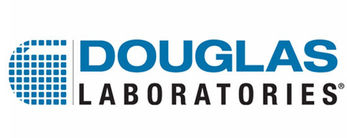Defeat Autism Now!
Despite the decades of research done on autism no one knows the exact cause of autism in children. This is in part because there is no one single cause, making it hard to nail down, especially when you try to make it applicable to every child diagnosed. In fact, most of the proposed causes of autism are considered to be controversial in the medical world. Many have presumed that the cause of autism is only genetic, some feel it is triggered by vaccines, or simply a psychological disorder and many see it is an immune dysfunction. So who is correct?
According to the science, children with autism have abnormal GI, immunological and/or toxicological systems due to a combination of genetic factors, undiagnosed food allergies, chronic infections, overuse of medications, GI dysbiosis (imbalances in the gut), vitamin/mineral deficiencies, and poor diets to name a few. In the last 10 years studies have shown a strong genetic link between the Methylenetetrahydrofolate Reductase (MTHFR) mutation and autism, Dr. Brooks , FNP CACCP, BCIP, DC has also seen this link in her practice. In addition, there is research from the Autism Research Institute (ARI) discussing the nutritional aspects of children with autism and their inborn deficits. For example, Nutrition Research Reviews published an article in July 2014, which reported the continued connection between autism and nutrition as is relates to the brain and gastrointestinal system. They specifically noted the differences in GI flora between those with autism and controls. They concluded nutrition-related factors play a causal role in autism and its symptoms.
When you put the whole picture together you can see why a child with autism is at a higher risk for injury. As the environmental toxins and exposures accumulate, the struggling body can no longer deal with them appropriately and damage occurs. This damage may be the first symptom a family sees. There is not one event that causes a child to be diagnosed with autism, not every child with autism acts or looks the same, nor is every child medically treated the same. There is no such thing as a one size fits all treatment for autism.
Autism, Who is the Right Doctor for You?
The standing belief among some providers today is that autism cannot be helped, it is just something a family has to accept. However, Dr. Brooks , FNP CACCP, BCIP, DC thinks otherwise, due in large part to her experiences in practice. In addition to her pediatric training as a chiropractor she has also trained with Autism Research Institute (DAN!) and the Medical Academy of Pediatric Special Needs (MAPS) in both clinician and nutrition training programs. The approach used to help children with autism is often called the Biomedical approach, although this is an older term, which has now been replaced with “integrative” or “functional” care. The biomedical belief is that more than a genetic illness, autism is a biomedical problem. The Defeat Autism Now (DAN) project began in 1960s, founded by the Autism Research Institute headed by Dr. Bernard Rimland, PhD. The protocol taught by ARI is a philosophical approach aimed at addressing the biochemical irregularities in one’s body using vitamin supplements, diets, proper lab testing and nutrition. With the irregularities fixed, children can “recover” from autism according to Dr. Rimland. You can read more on the research at www.autism.com.
Dr. Brooks , FNP CACCP, BCIP, DC assists patients with the various steps of care, which may include chiropractic, recommending the necessary supplements, diet changes and improving nutritional status. She also includes testing for food allergies/sensitivities, methylation pathways, genetic SNPs, GI related urine and stool testing, and blood work to find out what may be causing complications in children. It is also important to coordinate the biomechanical needs of the child too; these are the basics of how we function. In all cases, Dr. Brooks , FNP CACCP, BCIP, DC prefers to work in conjunction with other clinicians for better results and continuity of care. To find out more about how your child may be able to be helped and/or for a referral please call our office.





























